Reishi, Ganoderma lucidum: the mushroom of immortality
7 years ago · Updated 8 months ago
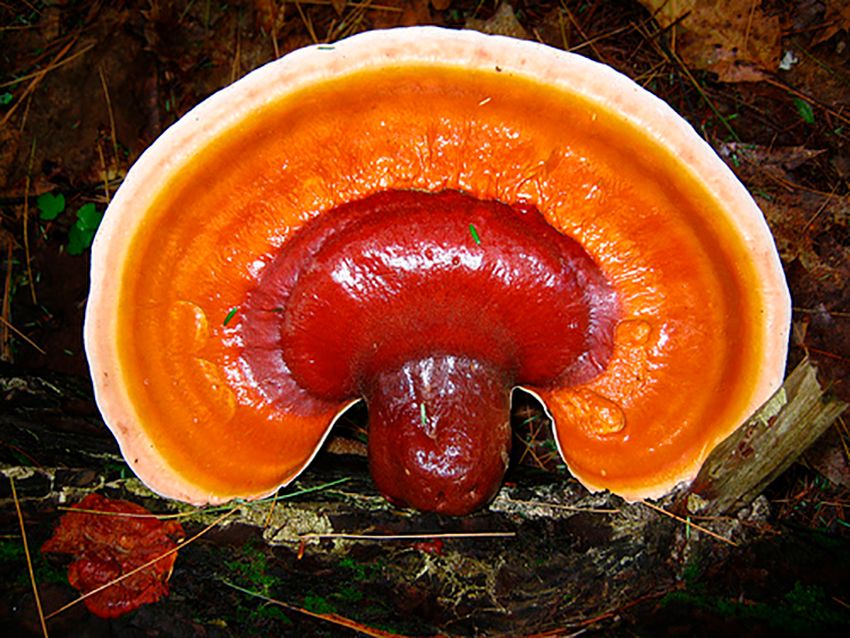
Ganoderma lucidum has been considered by Chinese culture for 4,000 years as “the miraculous king of mushrooms.” At La Casa de las Setas, we explain why and how to distinguish it.
This text is for informational purposes only and should not be considered a substitute for professional medical advice. Before making any changes to your diet or lifestyle, it is recommended that you consult a qualified healthcare professional. Similarly, it is important to note that research on the potential benefits of medicinal mushrooms is limited and further research is still ongoing to fully understand their effects on the human body.
- What is Reishi?
- Reishi, ganoderma, lingzhi: What is this medicinal mushroom called?
- Reishi Ganoderma, a woody mushroom
- Ganoderma lucidum: benefits of reishi
- Properties of Reishi: the mushroom of immortality
- Special precautions and warnings before consuming reishi
- Photographs of G. lucidum
- Reishi: Discover the benefits and properties of the ‘king of mushrooms’
- What is reishi?
- How to take Reishi
- Contraindications of Reishi
- Ganoderma lucidum, an extraordinary medicinal mushroom
- Properties of reishi
- What is reishi used for?
- Properties and contraindications of reishi
- How long does it take for reishi to work?
- Contraindications of reishi
- Does reishi cause weight gain? h2> Reishi itself does not contain significant calories and has not been shown to cause weight gain. However, some reishi products on the market may contain other ingredients that add calories. Therefore, it is important to read the labels of reishi products and consider their total calorie content if you are following a specific diet.
- Side effects of reishi
- Is it recommended to take reishi on an empty stomach?
What is Reishi?
Ganoderma lucidum, also known as Lingzhi or Reishi, is a reddish-colored mushroom. Its uniqueness lies in its many proven properties that benefit our body and improve our health.
Reishi is a mushroom or fungus with a woody appearance and hard consistency. It has a bitter, “harsh” and “woody” taste with a bitter aftertaste. Its entire outer body, from the stem to the cap, is consumed for medicinal purposes.
Reishi mushrooms are used to prevent aging and certain viral diseases such as influenza or lung diseases. In addition, it stimulates our immune system and is recommended for heart conditions, to prevent cholesterol and high blood pressure. These are just some of the conditions for which its consumption is recommended.

At La Casa de las Setas, we have selected a wide range of products made with this ancient medicinal mushroom. If you want to buy reishi, you must visit our website!
Reishi, ganoderma, lingzhi: What is this medicinal mushroom called?
The name of this medicinal mushroom, Ganoderma Lucidum, comes from the Greek “ganos” or shine and ‘dermos’ skin, and the species name “Lucidum” comes from Latin and means shiny.
Although it is considered an oriental mushroom, ganoderma lucidum can be found in many habitats throughout our geography, which is why we also have different popular names to define this curious medicinal mushroom.
Thus, we can find different names, from the scientific Ganoderma lucidum to others that define this mushroom morphologically. Seta de pipa or Pipa in Spanish. Esclatasang de pipa or Paella in Catalan. In Basque Ardagai pipa. In other languages, it is known as Glänzender Lackporling, Reishi, Ling Zhi or Mushroom of Longevity
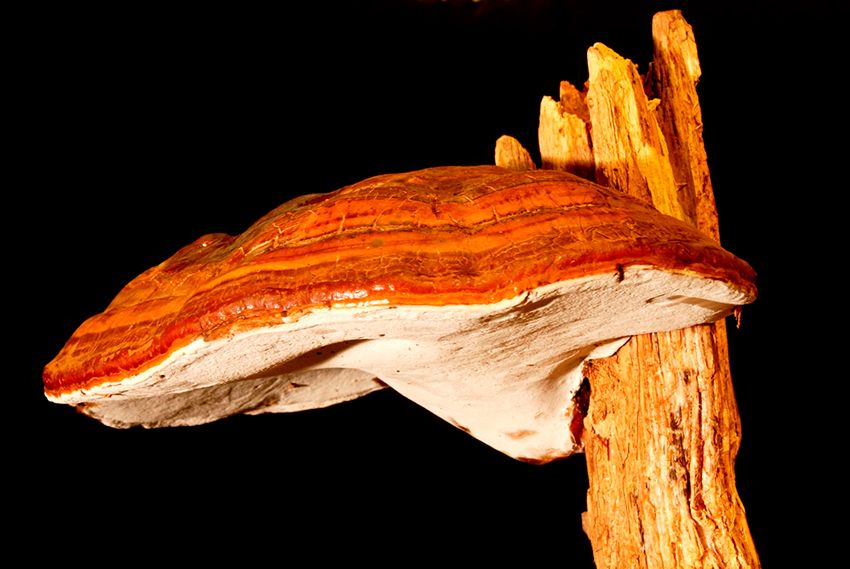
How to recognize Reishi, G. lucidum in its natural state
This is a very distinctive mushroom and by following these guidelines, we can easily differentiate it, as it has a fairly unique appearance.
The reishi cap is shaped like a pipe, with the cap corresponding to its upper part. Its dimensions vary between 5 and 20 cm in diameter. It can even be much larger depending on the species of reishi found. The shape of the cap resembles that of a kidney, becoming fan-shaped when mature.
Reishi Ganoderma, a woody mushroom
The consistency of the ganoderma cap is very tough, woody, and hard. Its cuticle cannot be separated, and its intense red color is a determining factor in its identification.
This reddish hue can vary from orange to mahogany. As we approach the edge of the cap, the color lightens. This is another of the defining characteristics of reishi. What does not vary is the shine of its cuticle, which in some cases resembles varnish.
The hymenium of lingzhi is formed by tight, white, non-separable tubes. The pores of these tubes are very small and vary in color from white in young specimens to cream in adults.
Pipe mushroom, shaped like a smoking pipe
The stem of Ganoderma lucidum, or pipe mushroom, is always eccentric. It is irregular, hard, and sinuous in shape. The stem measures between 1 and 4 cm in diameter and between 4 and 14 cm in height. In some specimens, the stem may be almost non-existent. Its texture is also shiny and slightly rough.
The way the stem joins the cap, forming an angle of almost 90º, is also very characteristic of this medicinal mushroom. In fact, the name pipe or pipe mushroom comes precisely from the shape of this insertion, which resembles a pipe or hookah.
Ganoderma lucidum: benefits of reishi
The flesh of the reishi mushroom is very woody and hard, so it should be consumed by infusing the mushroom in food or grinding it very finely and using this reishi flour dissolved in food or drinks. In fact, despite being edible, reishi is only consumed for therapeutic or medicinal purposes.
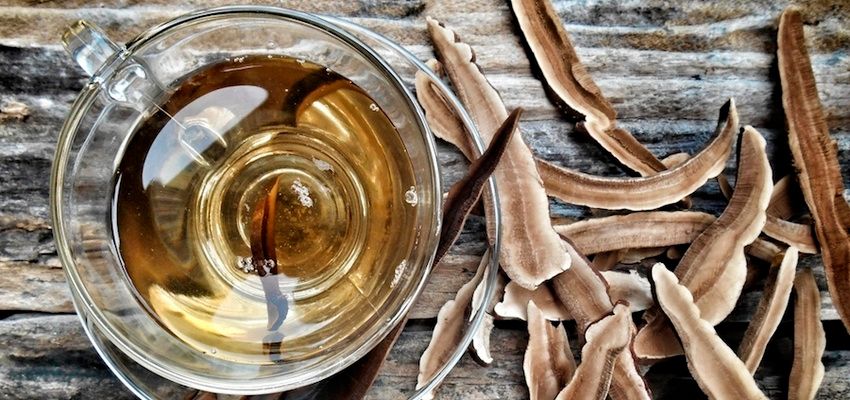
Habitat of reishi in its natural state
We are talking about a saprophytic species that fruits on decaying wood or dead wood. It is a lignicolous species. It is not very common in its natural state, although photographs of reishi can be found in our forests every season.
Sometimes we find it at ground level, but if we lift the leaf litter, we will see that it is attached to a dead branch of holm oak, cork oak, oak, etc.
When can we find ganoderma reishi in its natural state?
Ganoderma lucidum appears annually and its sporophores can remain in development for a long time if conditions are optimal. Thus, we can find it from spring to fall.
What is reishi made of?
Reishi, as this medicinal mushroom is also known, is mainly composed of complex carbohydrates called water-soluble polysaccharides, triterpenes, proteins, and amino acids.
Research suggests that the most active component of Ganoderma lucidum, with antitumor effects, are water-soluble polysaccharides.
Triterpenes, another active ingredient found in reishi (also known as ganoderic acids), help relieve common allergies by inhibiting the release of histamine, improve oxygen utilization, and enhance liver function.
For all these reasons, regular consumption of reishi can improve the body's immune system and improve blood circulation, enhancing and strengthening our health. In general, ganoderma is recommended as an adaptogen, immunomodulator, and general tonic.
An adaptogen is a product capable of increasing vitality and general well-being in people. It has the ability to help the body adapt to stressful environmental or personal situations, strengthening the nervous and endocrine immune systems.
What is Reishi used for? What is Ganoderma used for?
Over the last few decades, numerous scientific studies have been conducted in several countries (Japan, China, the United States, and the United Kingdom) in which ganoderma lucidum has been used to treat a wide range of common diseases and ailments. From asthma to shingles, the applications of reishi appear to be linked to a multitude of organs and body systems.
If you are still wondering what Reishi is used for, it is also used to help treat liver conditions, bronchitis, high blood pressure, insomnia, and asthma. Other mushrooms and adaptogenic products in addition to reishi include shiitake, ginseng, maitake, and more.
Ganoderma, Lingzhi as a dietary supplement
The medicinal mushroom ganoderma or reishi is not generally used as a food mushroom. Its texture is too hard and it also has a bitter taste. It is used as a dietary supplement.
Reishi or Ganoderma has very high nutritional properties. It is rich in unsaturated fatty acids, vitamin B, calcium, and silicon. It may contain around 200 micronutrients, 154 of which are powerful active antioxidants that are vital for our body.
The vast majority of research conducted on ganoderma lucidum seems to strongly support the role of reishi as a dietary supplement that can provide medical benefits through the normalization and regulation of the body's organs and their functions.
Properties of Reishi: the mushroom of immortality
Traditional Eastern medicine attributes the benefit of prolonging our life to Ganoderma lucidum. Science has also confirmed, through various studies, that its consumption greatly helps to improve our well-being and health.
Reishi has a long history of traditional use in TCM, dating back some 4,000 years. This is why Ganoderma reishi is perhaps the most highly prized medicinal mushroom. In fact, in China, Reishi or Lingzhi is called the “mushroom of immortality” or “mushroom of spiritual power.”
What effects does the ganoderma mushroom have on our body?
Reishi mushrooms contain chemicals that appear to have a variety of potentially beneficial effects, including anti-tumor (cancer) activity and beneficial effects on the immune system.
What are the properties of reishi?
When discussing the use of medicinal mushrooms, we do not recommend replacing any ongoing medical treatment with them, but rather combining their use to enhance their effects. And always under the supervision of your specialist doctor.
Of all its properties, perhaps the most recognized is its effectiveness in increasing T immune cells, which are very useful in our body's fight against cancer cells.
For this reason, it is mainly consumed for this purpose. In combination with other dietary supplements, it is used to slow down, prevent, and fight cancer.
Studies claim that the ganoderma lucidum mushroom increases the patient's response to the tumor by stimulating their immunity. Other studies show that consuming reishi significantly improves the results obtained with radiotherapy and chemotherapy treatment.
The secret of these properties lies in the rich composition of the lingzhi mushroom. Among its components, triterpenes, sterols, minerals, essential amino acids, alkaloids, and B vitamins are worth highlighting.
General improvement of the body
Regular consumption of ganoderma improves circulation, including cerebral circulation. That is why it is recommended for improving certain cognitive disorders. It is also suitable for combating fatigue, improving the digestive system, and promoting better sleep.
Another of the main benefits is the ability of reishi to help our body adapt to situations of change or stress. These situations require our body to have extra defenses, which we can provide with reishi.
Anti-aging, anti-inflammatory, and purifying
Consuming reishi improves liver cell regeneration, allowing the liver to function optimally. This improves the liver's ability to filter and cleanse toxins from our blood.
In patients suffering from migraines, gout, or arthritis, very positive results have been demonstrated thanks to its anti-inflammatory properties. The same is true of its antihistamine properties, which improve results in patients suffering from allergies or respiratory problems.
The mushroom of immortality or 100 years has been traditionally used for its ability to strengthen immunity with its antioxidants and increase longevity. The cause of this slowdown is thought to be its antioxidants, which neutralize the action of free radicals, the cause of aging.
Over 700 scientific studies support the properties of reishi mushrooms
There are numerous scientific studies that support the benefits of consuming reishi. We recommend these three:
- https: //www. ncbi. nlm. nih. gov/pubmed/23557365
- http: //www. sciencedirect. com/science/article/pii/S0065216408702533
- https: //www. ncbi. nlm. nih. gov/pubmed/24948193
Contraindications when taking reishi and medications for high blood pressure
When we talk about reishi, we are referring to an entirely natural product. And although it is completely safe to consume, it is possible that in combination with certain medications, it may cause intolerance. We are referring to its combined use with medications for high blood pressure. In these cases, an increase in the potency of the medication may occur.
In these cases, and before taking reishi, we recommend consulting your specialist doctor so that they can advise you.
Special precautions and warnings before consuming reishi
Although there are no studies advising against its consumption during these stages, we must be cautious and avoid it during pregnancy. This is a very delicate period and it is best to avoid any possible risks.
People with bleeding disorders should not consume reishi in high doses. This could increase the risk of bleeding.
Continued consumption of ganoderma can lower blood pressure, so if you have low blood pressure, you should be especially careful when taking reishi.
In patients with thrombocytopenia, high doses are not recommended as they may increase the risk of bleeding.
If you are scheduled for surgery, we recommend that you stop taking reishi 15 days before the procedure. High doses of reishi may increase the risk of bleeding in some patients.
How can I take ganoderma reishi?
Ganoderma can be consumed in various ways, including:
Reishi powder, ground reishi extract added to our daily diet or in infusions. It is not necessary to filter foods to remove mushroom residue (provided it is well ground).
Dehydrated and laminated Ganoderma lucidum, to add to our meals during cooking or to make infusions. In this case, unlike Reishi powder, we will need to remove the Reishi strips from the food, as their tough texture will make them difficult to consume.
Reishi extract in capsule form. This type of supplement is more concentrated than dehydrated or powdered mushrooms and can be consumed at any time, which improves the results and benefits obtained. In addition, it can be combined with other medicinal mushroom extracts such as maitake, cordyceps, or shiitake, thereby multiplying their properties.
How much Ganoderma lucidum can I take?
According to experts, reishi can be taken on a regular basis, although the recommended dose is between 1 and 3 grams per day, which can be increased to 4 grams per day for people undergoing radiation or chemotherapy.
It is advisable to spread consumption over the 3 meals we eat each day and, if possible, accompany it with vitamin C or orange juice.
Photographs of G. lucidum
The reishi mushroom, with its spectacular color, attracts a lot of attention, and for this reason, when we photograph this mushroom, the results are magnificent.
If you have any photographs of this mushroom that you would like us to publish, please send them to us and we will include them in future updates
Reishi: Discover the benefits and properties of the ‘king of mushrooms’
Reishi is a mushroom that has been used for centuries in traditional Asian medicine and is believed to have anti-aging and emotional management properties. It is also considered an adaptogen that can help the body manage stress and strengthen the immune system.
Its antioxidant, anti-inflammatory, sleep-enhancing, and liver-protecting properties have been proven. There are different ways to take reishi and some precautions to keep in mind when consuming it. In this article, we tell you everything you need to know about reishi.
What is reishi?
Reishi is a mushroom considered a jewel of Eastern medicine due to its potential health benefits. It has been used for centuries in traditional Chinese, Japanese, and Korean medicine.
Origin and history
Reishi is believed to have originated in Asia and has been used in traditional Chinese medicine for over 2,000 years. In ancient China, the mushroom was considered so valuable that only emperors had access to it.
Throughout history, reishi has been used in traditional medicine to treat various ailments, including liver problems, respiratory issues, and diabetes. It is also believed to have properties that increase longevity and improve overall health.
Chemical composition
Reishi is a mushroom that contains various active biomolecules such as polysaccharides, terpenes, and peptidoglycans. These components of reishi are responsible for its potential health benefits. The mushroom also contains minerals such as iron, calcium, and zinc, as well as vitamins B and D.
Properties and health benefits
Reishi is believed to have a wide variety of properties and health benefits. It is considered an adaptogen that can help the body manage stress and strengthen the immune system.
Some studies suggest that reishi may have several health benefits, such as improving blood circulation, being beneficial for arthritis and migraines, and reducing the symptoms of asthma or bronchitis. In addition, its antioxidant, anti-inflammatory, sleep-enhancing, and liver-protective properties have been proven.
Although it is credited with many benefits, there is not enough scientific evidence to support them, and some of these studies are limited and of poor quality. It is important to note that reishi cannot cure diseases, but it can be a supplement to a healthy lifestyle and a balanced diet.
How to take Reishi
Reishi can be found in various forms. It is important to ensure that you are taking the right type for your health goals and to choose high-quality, certified products.
Recommended dosage
The recommended dosage of Reishi varies depending on the form in which it is consumed and the product used. In general, a safe dose is considered to be between 1.5 and 6 grams per day, however, it is always recommended to follow the manufacturer's instructions and not exceed the recommended dose. In addition, it is always advisable to consult a doctor or specialist if in doubt before taking any supplement.
Precautions and warnings
Although most people tolerate Reishi without experiencing any side effects, it is important to take certain precautions and warnings into account before consuming it. Side effects may be more severe in people who are allergic to mushrooms.
Certain drug interactions, such as with medications that lower blood pressure or delay blood clotting, may require you to talk to your doctor before consumption. It is not recommended for pregnant or breastfeeding women, or for people with bleeding disorders or low blood pressure.
Some side effects that may occur with use include dry mouth, skin rashes, stomach pain, diarrhea, headaches, nosebleeds, and dizziness. If any of these symptoms are experienced, it is recommended to reduce the dose or stop taking the supplement and consult a doctor.
Contraindications of Reishi
Although Reishi is generally considered a safe mushroom, it is important to be aware of the possible contraindications that may arise from its consumption. Below are the side effects and interactions with other supplements or medications that have been observed in some cases:
Side effects
Side effects associated with Reishi consumption are mild and uncommon. In some cases, the following symptoms have been observed:
- Dry mouth
- Skin rashes
- Stomach ache
- Diarrhea
- Headache
- Nosebleeds
- Dizziness
If any of these symptoms occur, it is recommended to reduce the dose or discontinue use of Reishi.
Interactions with other supplements or medications
Reishi may interact with certain supplements or medications, so it is important to take the following precautions:
- People with bleeding disorders or low blood pressure: Reishi may increase the risk of bleeding in people with bleeding disorders or lower blood pressure in people with low blood pressure.
- Drug interactions: Reishi may interact with certain medications that lower blood pressure and delay blood clotting.
- People undergoing treatment: It is recommended to consult a doctor before consuming Reishi if you are undergoing treatment with a medication or supplement to avoid any interactions.
- Pregnant or breastfeeding women: Reishi consumption is not recommended for pregnant or breastfeeding women due to insufficient information on the possible effects of the mushroom on them.
It is important to consider the possible contraindications that may arise from consuming Reishi. If you experience any side effects or are taking medication, it is recommended that you consult a doctor before consuming Reishi.
Ganoderma lucidum, an extraordinary medicinal mushroom
Reishi, also known as Ganoderma lucidum, is a mushroom widely used in traditional Chinese medicine due to its many health benefits. Over the centuries, it has gained a reputation as the “mushroom of immortality” due to its alleged healing and fortifying properties for the body. In this article, we will explore in depth the properties, benefits, and possible contraindications of reishi, answering the most frequently asked questions about this fascinating mushroom.
Properties of reishi
Reishi is known to be a rich source of bioactive compounds, such as polysaccharides, triterpenoids, amino acids, vitamins, and minerals. These compounds give it antioxidant, anti-inflammatory, immunomodulatory, and neuroprotective properties. In addition, reishi contains beta-glucans, which can strengthen the immune system and improve the body's response to disease.
What is reishi used for?
Reishi has been traditionally used to treat a wide range of health issues. Some of the most common uses of reishi include:
- Immune system support
- Stress reduction and mood enhancement
- Improved sleep quality
- Liver protection
- Regulating blood pressure
- Supporting cardiovascular health
- Antitumor and antineoplastic properties
Properties and contraindications of reishi
Reishi has a variety of beneficial health properties, but may also have contraindications in some cases. Some of the properties and contraindications of reishi include:
- Properties:
- Antioxidant action: reishi contains antioxidants that help fight oxidative stress and protect the body from free radicals.
- Anti-inflammatory effect: Reishi has been shown to have anti-inflammatory properties, which may benefit people with chronic inflammatory conditions.
- Immune system support: Compounds found in reishi may boost the immune system, helping the body defend itself against infections and diseases.
- Anti-cancer potential: Some studies suggest that reishi may have anti-tumor and anti-neoplastic properties, although more research is needed.
- Contraindications:
- Drug interactions: Reishi may interact with certain medications, such as anticoagulants or high blood pressure medications, so it is important to consult a doctor before starting to take it.
- Allergies: Some people may be allergic to reishi, so it is important to watch for any allergic reactions and stop using it if you experience any.
- Bleeding disorders: Due to its anticoagulant effect, people with bleeding disorders or who are scheduled to undergo surgery should avoid consuming reishi.
How long does it take for reishi to work?
The time it takes for reishi to work varies from person to person, as it depends on several factors, such as the dose, frequency of use, and specific health condition.
Some people may experience immediate benefits, such as a feeling of calmness or improved sleep quality, while others may need prolonged use to notice significant changes. In general, it is recommended to be patient and allow sufficient time for reishi to show its effects.
Contraindications of reishi
Although reishi is considered safe for most people when consumed in appropriate amounts, there are some contraindications to consider. Some situations in which caution should be exercised when using reishi include:
- Pregnancy and breastfeeding: The safety of reishi during pregnancy and breastfeeding has not been established, so it is recommended to avoid consumption during these stages.
- Autoimmune diseases: due to its stimulating effect on the immune system, reishi may worsen autoimmune diseases, so caution should be exercised in these cases.
- Bleeding disorders: Reishi may have anticoagulant properties, so people with bleeding disorders or taking anticoagulant medications should avoid consumption or consult a doctor before doing so.
Does reishi cause weight gain?
h2>
Reishi itself does not contain significant calories and has not been shown to cause weight gain. However, some reishi products on the market may contain other ingredients that add calories. Therefore, it is important to read the labels of reishi products and consider their total calorie content if you are following a specific diet.Side effects of reishi
In general, reishi is well tolerated by most people and is considered safe when consumed in adequate amounts. However, in some cases, mild side effects may occur, such as stomach upset, dry mouth, dizziness, or skin rash.
These side effects are usually temporary and disappear when you stop using reishi. If you experience persistent or more serious side effects, it is recommended that you consult a doctor.
Is it recommended to take reishi on an empty stomach?
The choice of whether to take reishi on an empty stomach or with food depends on your personal preferences and how your body tolerates it. There is no strict recommendation to take it on an empty stomach, but some people find that taking it on an empty stomach improves its absorption and effectiveness. If you decide to take it on an empty stomach, be sure to follow the dosage instructions and consult a healthcare professional if you have any specific concerns.
In summary, reishi is a mushroom with widely recognized medicinal properties and health benefits. Its antioxidant, anti-inflammatory, immunomodulatory, and neuroprotective properties make it a popular natural supplement for boosting the immune system, reducing stress, and improving sleep quality, among other benefits.
However, it is important to consider the possible contraindications and side effects of reishi, especially in cases of pregnancy, breastfeeding, autoimmune diseases, and bleeding disorders. As always, it is recommended to consult a healthcare professional before incorporating any new supplement or treatment into your routine.
Have you already incorporated this miraculous mushroom into your diet? How do you consume it? In powder form, as an extract, or in an infusion? Send us one of your recipes and we will be happy to publish it.
This text is for informational purposes only and should not be considered a substitute for professional medical advice. Before making any changes to your diet or lifestyle, it is recommended that you consult a qualified healthcare professional. It is also important to note that research on the potential benefits of medicinal mushrooms is limited and further research is ongoing to fully understand their effects on the human body.
Health, ganoderma, and medicinal mushrooms

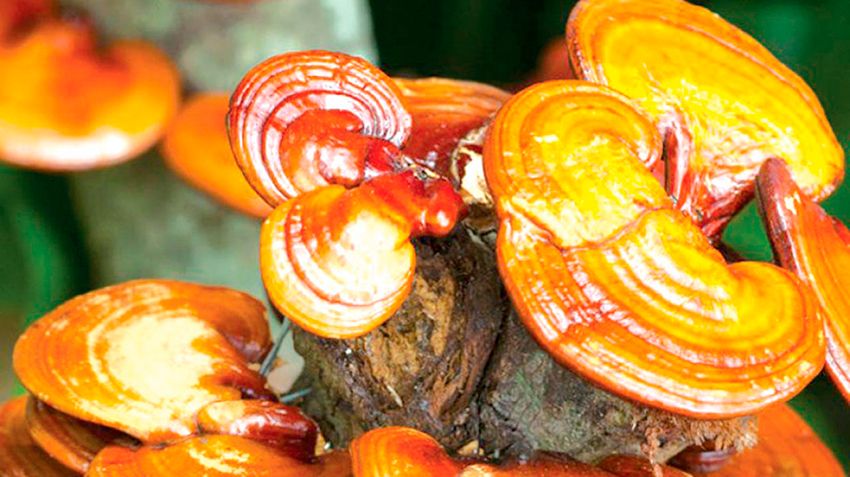

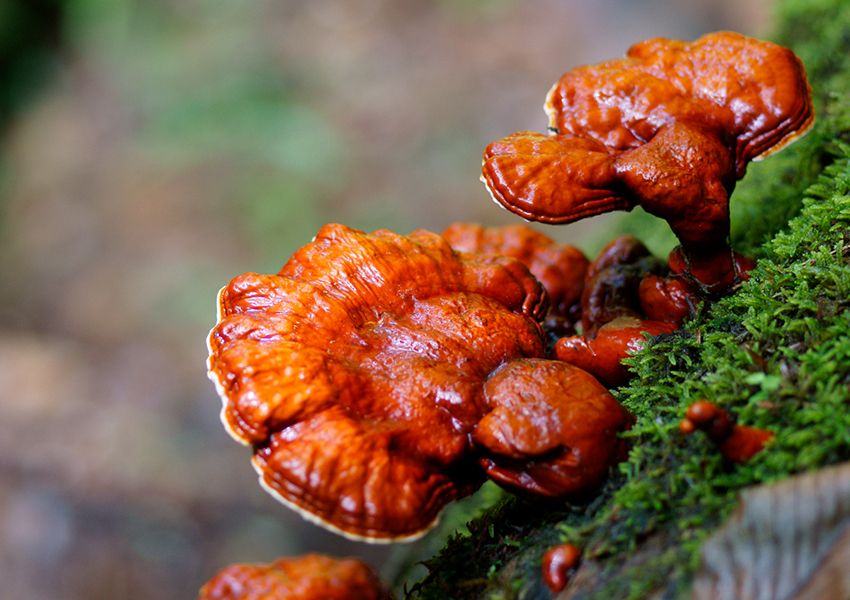
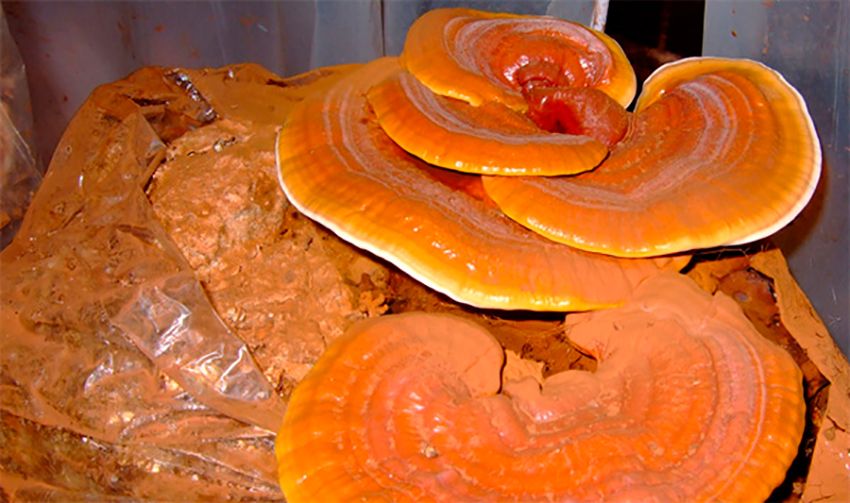
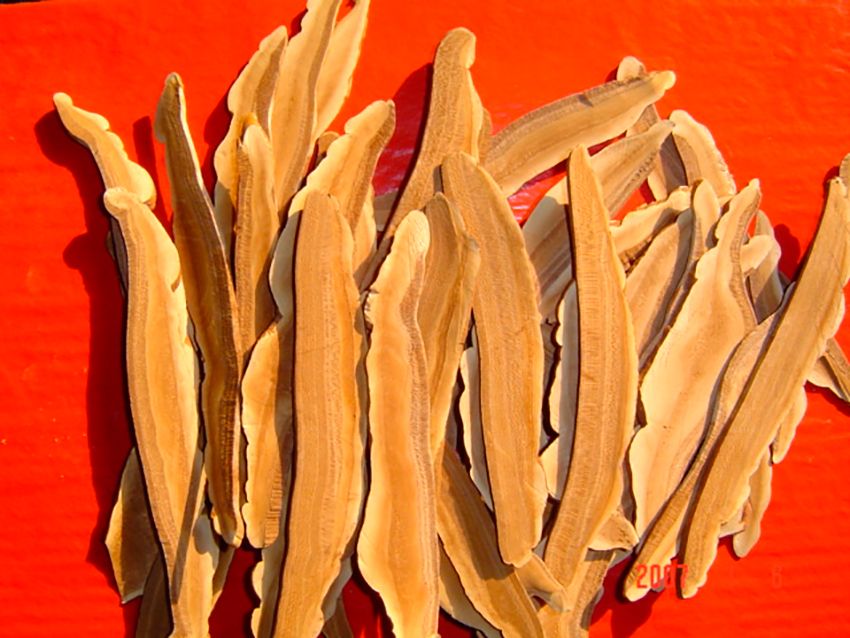
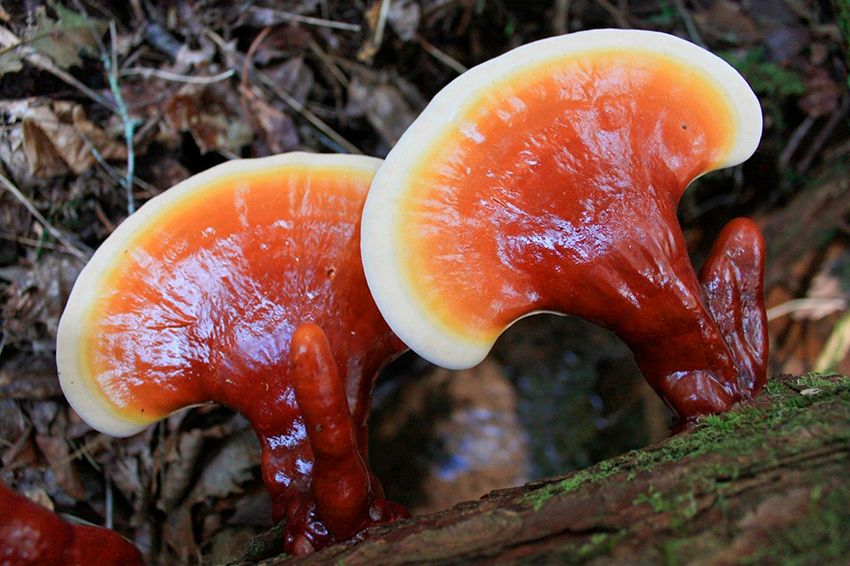
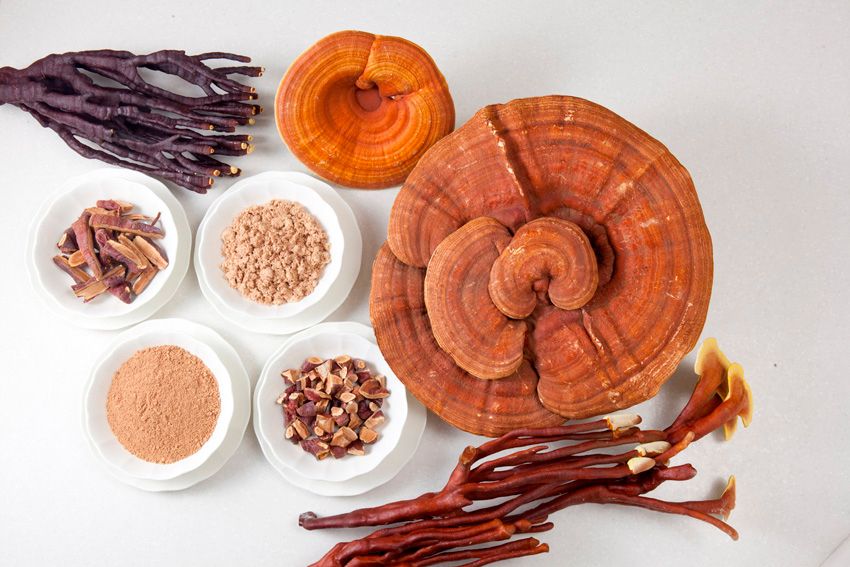
Te pueden interesar